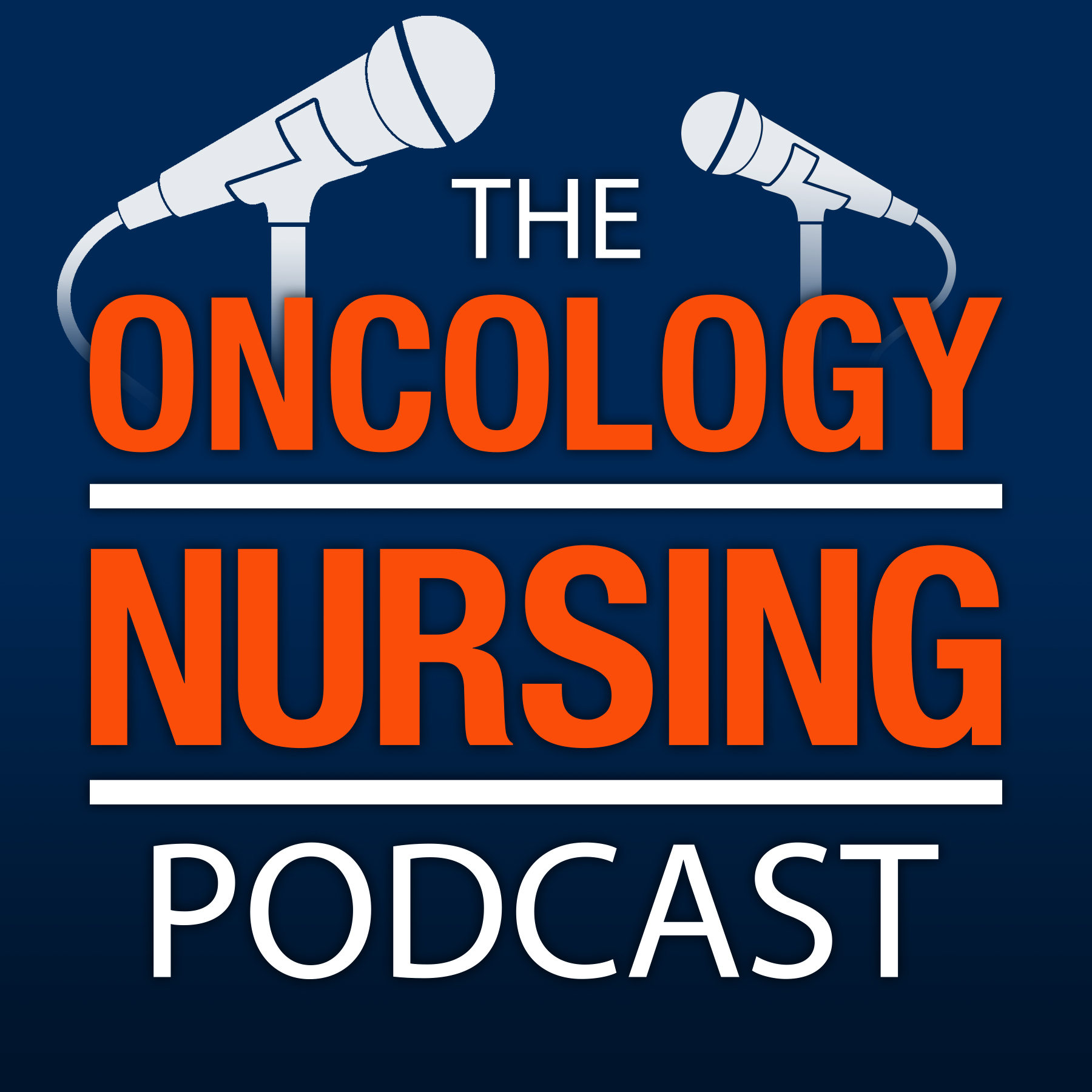
Episode 274: Music Therapy for Patients With Cancer

The Oncology Nursing Podcast
Shownotes Transcript
“You don’t have to have any musical background to benefit from musical therapy,” ONS member Susan Yaguda, MSN, RN, manager of integrative oncology and survivorship in the Department of Supportive Oncology at the Levine Cancer Institute in Charlotte, North Carolina, told Jaime Weimer, MSN, RN, AGCNS-BS, AOCNS®, manager of oncology nursing practice at ONS, during a discussion about how music therapists and oncology nurses collaborate to offer music therapy’s benefits to patients with cancer. You can earn free NCPD contact hours after listening to this episode and completing the evaluation linked below. Music Credit: “Fireflies and Stardust)” by Kevin MacLeod Licensed under Creative Commons by Attribution 3.0 Earn 0.5 contact hours of nursing continuing professional development (NCPD), which may be applied to the Symptom Management, Palliative Care, and Supportive Care ILNA categories), by listening to the full recording and completing an evaluation at myoutcomes.ons.org) http://myoutcomes.ons.org/)by August 25, 2025. The planners and faculty for this episode have no relevant financial relationships with ineligible companies to disclose. ONS is accredited as a provider of NCPD by the American Nurses Credentialing Center’s Commission on Accreditation. Learning outcome: The learner will report an increase in knowledge related to the use of music therapy. Episode Notes Complete this evaluation for free NCPD).
ONS Voice articles:
What the Evidence Says About Music Therapy for Cancer-Related Fatigue)
Music Therapy May Bridge Race-Related Gaps in Cancer Pain Management)
Clinical Journal of Oncology Nursing article: Mindful Awareness of Music: A Modality for Symptom Management)
Academy of Neurologic Music Therapy)
American Music Therapy Association)
Association for Music and Imagery)
Certification Board of Music Therapists)
To discuss the information in this episode with other oncology nurses, visit the ONS Communities).
To find resources for creating an ONS Podcast Club in your chapter or nursing community, visit the ONS Podcast Library). To provide feedback or otherwise reach ONS about the podcast, email [email protected]). Highlights From Today’s Episode “A lot of people have their workout playlist or something that kind of pumps them up before they're going to go play a tennis match or something like that. But in using music in this way, there isn't really a specific therapeutic goal and the relationship in these situations. And while any of us can provide recorded music or live music to patients, certainly our care partners, if we're not trained as music therapists, it just should not be considered or referred to as music therapy.” TS 3:56 “It might be using music to help regulate breath work, to reduce stress and anxiety associated with whatever they're having done in the suite. It can also be used as a distraction.” TS 6:19 “Oftentimes after that point, our patients may be starting to experience some other troubling side effects or symptoms from their treatment or their cancer. The music therapist can help them with better manage those in a supportive way. And this can be done in things like techniques to help them manage pain, techniques to help them maybe destress and get more restful, sleep even.” TS 7:00 “Sometimes using music as that tool helps create the space that does feel even more safe. It’s not necessarily having to talk to someone directly, but music is the vehicle for doing that processing work.” TS 15:01 “There is receptive music therapy. So that is basically where the person receiving music therapy is not co-creating music, or writing lyrics, or anything like that, they’re just listening. There might just be some paced breathing exercises that are incorporated into this. It tends to be a more repetitive type of cadence to the music that can help create just being in a better zone if they’re trying to and bring the anxiety level down.” TS 16:16